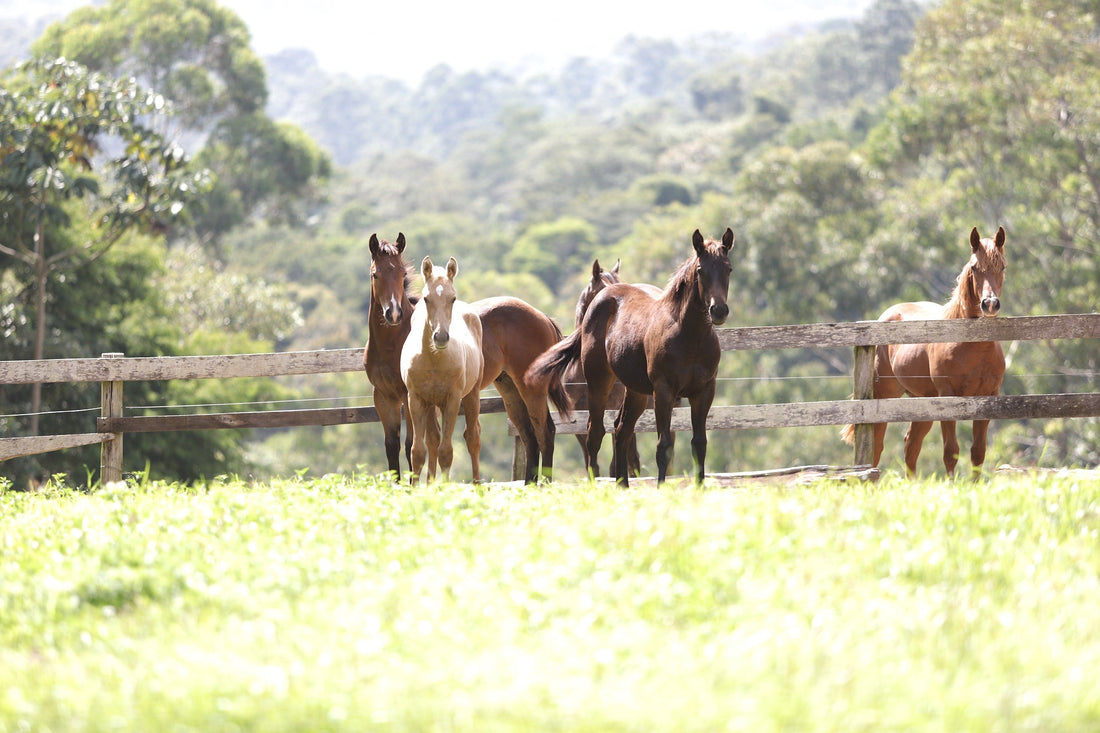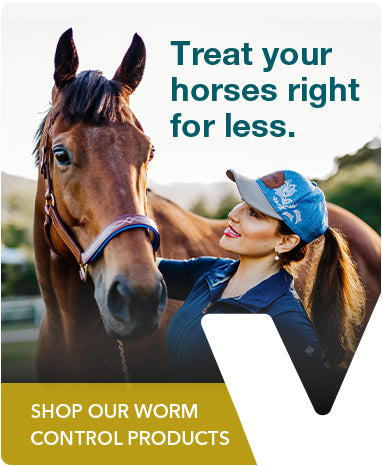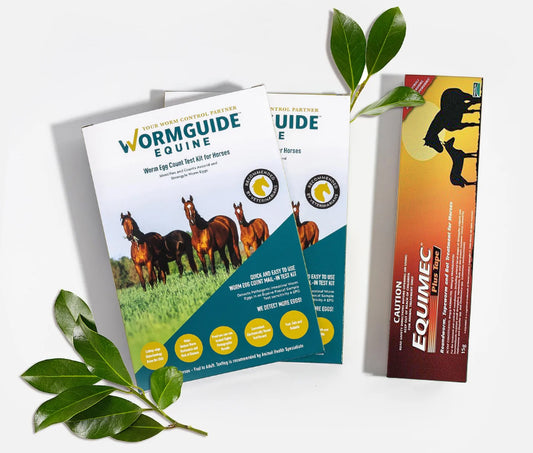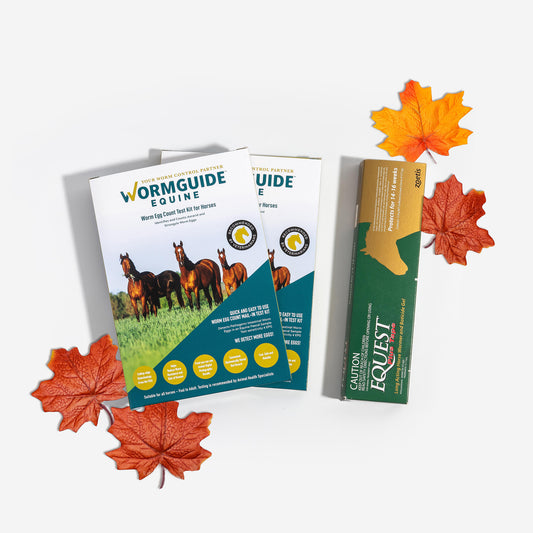There is nothing quite like the excitement of birth. Welcoming new life to your property is a momentous and exciting occasion. But if you are waiting for the arrival of a horse-baby, or if you have just welcomed a youngster to your herd, you know that welcoming a foal can also bring a fair share of anxiety and a long list of questions. Mares can be pregnant for anywhere from 320 to 380 days so for horse owners, uncertainty and foaling often go hand in hand!
But no matter how long you have waited, (or how long you continue to wait) being a prepared and informed foal owner makes all the difference. Natures plan is beautifully scripted; however, horse owners must remain actively involved in the care of new mothers and their young.
A healthy foal will grow rapidly, almost before your very eyes. From birth to age two, a young horse can grow to 90 percent of its full adult size, often putting on more than 1kg per day (AAEP).

A nutritional start to life can have a profound effect on the health and development of your youngster. Antibody-rich colostrum (the first milk produced by mammals after birth) is very nutritious and helps protect your foal from disease at first, then this burden gradually shifts to other sources. Good management, vaccination regimes and strategic deworming approaches are all important components of a young horse wellness plan. We include important information about foal deworming here so keep reading. When it comes to contemporary foal worm care approaches and foal deworming schedules, we’ve got you. Make sure you also involve your vet in your young horse health care decisions.
You may find that as soon as 10 to 14 days after birth, a foal may begin to show an interest in feed. Nibbling and sampling, help youngster learn to eat solid food. This is normal and a foal’s digestive system quickly adapts to dietary changes.
From about 12 weeks after birth, or during the third month, you will notice your mare's milk supply gradually decline, and a natural weaning process begins. Commonly foals are weaned at four to six months of age.
Once a foal is no longer nursing, then the weanling should be eating approximately two to three percent of its body weight in feed and forage a day.
It is essential that the ration be properly balanced for vitamins and minerals, energy and protein. (For more information on foal nutrition, take a look at feeding guidelines published by AAEP here).
Because of our responsibility to protect our horse-babies from disease, it is also important that recently weaned foals are turned out onto the “cleanest” pastures with the lowest parasite contamination levels because foals are infected from the environment. When they ingest grass, or something else, they are infected with eggs containing parasites in the infective stage.
How much do you know about the parasites living on your property?
Does a mare's milk protect my foal from worm related disease?
As you would expect young horses are particularly susceptible to parasitic worm infections. But just as the biologically active phenolic compound in chocolate doesn’t guarantee that my daily glass of chocolate milk will protect me from cognitive decline, mare's milk alone cannot be expected to adequately meet a foal's ongoing health requirements. During the first weeks of life, mare's milk provides everything a rapidly growing foal needs for sustenance, however it does not provide adequate protection against parasitic worm disease.
So, we can’t say it enough ... Young horse worm control cannot, and must not, be overlooked. Set reminders on your phone, post sticky notes around the house, or call your voicemail and leave reminder messages for yourself if you have to, but don’t forget to implement and continue a properly timed strategic worm control program for your foal from the outset.
If you are looking for a young horse worm control advantage you might want to browse our Foal’s First Year Worm Care Bundle here. This convenient bundle includes an easy-to-follow treat, test and check foal deworming schedule, three deworming treatments and state-of-the-art worm egg count analysis to give your horse-baby the best start to life.
Why is young horse worm control so important?
Young horses are more at risk of disease than other horses. They are being bombarded by bacteria, viruses, fungi and parasites so it’s up to us to provide the extra special care and attention they need to keep them safe. According to equine practitioner Dr Espy, ‘foals are designed to be turned out with their mother the morning after foaling’, and it’s here that many of the nasties lurk. Ascarids (also known as roundworm), cyathostomins (small strongyles), large strongyles, and tapeworms are all acquired on pasture. It is inevitable that all horses will acquire horse worms so an up-to-date and properly timed worm control approach from the outset is vital.
Weanlings that are not wormed with the best choice of dewormer are also at increased risk of ascarid associated colic. When ascarid impaction occurs, masses of dead worms block and impact the small intestine. This is almost always deadly.
A meaningful and sustainable young horse parasite control program should aim to minimise the risk of parasitic disease. We cannot overstate the importance of following very specific young horse parasite control recommendations that differ greatly from adult horse parasite control guidelines.
Did you know that the first very specific deworming treatment is recommended for foals at 2 months of age?
Can I just deworm my foal using the same targeted worm control strategy that I have implemented for my adult horses?
No. No. No. No. and No.
A young horse worm control approach is very different to the recommended adult horse worm control approach. A targeted deworming approach (sometimes called a selective deworming approach) based on worm egg count test results should not be implemented for your foal. A foal deworming schedule incorporates frequent worm egg count surveillance and more horse worming treatments to ensure your baby is not ravaged with virulent worms.
Guidelines inform the special worm control attention that young foals and weanlings need, and great care should be taken to follow these very specific foal deworming protocols.
As a rough guide, most foals should have the benefit of approximately four to five deworming treatments during their first 15 months. More than five deworming treatments would require firm justification based on infection pressure or clinical problems in the herd. Fewer than four deworming treatments would usually be considered inadequate.
Foals are commonly co-infected with strongyle and ascarid worms. This can often complicate worm control strategies, so a testing, treating and checking worm control regime is crucial.
Our Foal’s First Year Worm Control Bundle streamlines the process, helping you to perform the correct test, treat or check action when it is required to ensure all horse-babies are dewormed with the correct product at the appropriate time for the parasites present.
Our Bundle is every foal owners convenient and worry-free key to a young horse worm control crusade. Why not browse the Bundle here.
Welcoming a horse-baby is nerve-wracking and exciting. The more you know about providing excellent nutrition, conscientious worm care and a safe environment the more equipped you will be to raise a happy healthy horse.
And before you go ... let’s not forget the in-betweeners!
Between one and four years of age treatment regimens will vary among horse properties. The in-between age group program will resemble a compromise between a program appropriate for yearlings and one recommended for adult horses. Many horse properties would be justified to administer three annual treatments to this age group. Remember, yearlings are still considerably more susceptible to parasitic infection than older horses.
If you are looking for a worry-free foal worm control approach, and you haven’t browsed our Worm Care Bundle yet, what are you waiting for? Everything you need for young horse first-year worm care peace of mind is here.
WormGuide help you treat your horses right. Get in touch if you have any questions about young horse worm control. We'd be more than happy to help.
Best,
Larissa and Team WormGuide.











